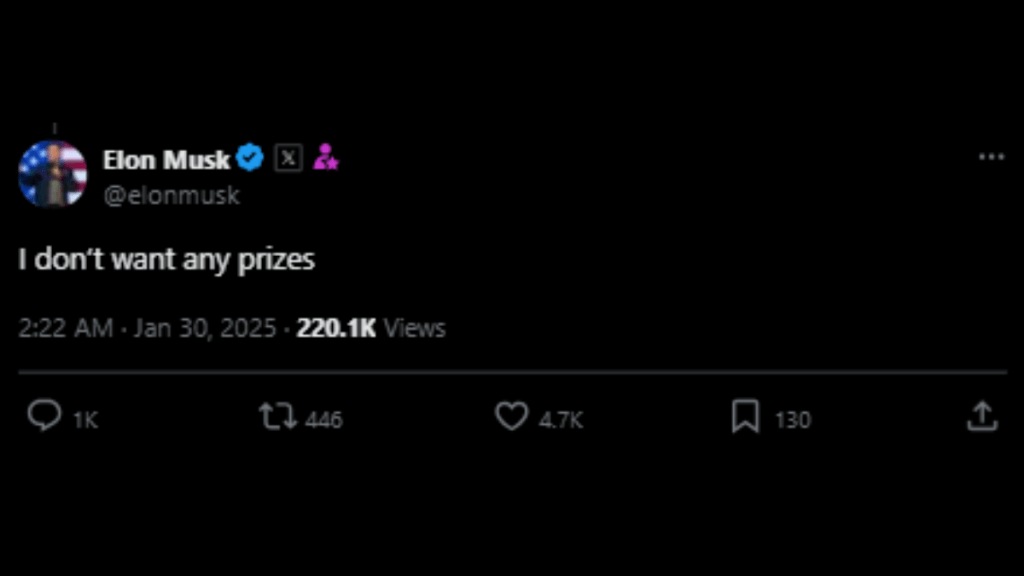Tesla and SpaceX CEO Elon Musk has made it clear he is not interested in receiving the Nobel Peace Prize, despite being nominated by a European Parliament member for his efforts to protect free speech. Musk, known for his outspoken views on censorship and his controversial acquisition of X (formerly Twitter), responded to the nomination with a blunt message: “I don’t want any prizes.”
The proposal for Musk’s nomination came from Branko Grims, who praised the billionaire for his “consistent support” of free speech as a fundamental human right. Musk’s acquisition of Twitter in 2022, and its subsequent rebranding to X, was seen by some as a revolutionary move in restoring free speech on the platform. Under Musk’s ownership, the platform has reversed bans on prominent conservative voices, rolled back content moderation policies, and placed a strong emphasis on upholding free expression. However, his tenure at X has also faced significant criticism, with some accusing the platform of fostering misinformation and harassment.
Musk’s rejection of the Nobel Peace Prize follows a long-standing pattern of dismissing formal recognition for his work. In a statement, Musk reiterated that his focus is not on personal accolades, but on his broader mission of supporting free speech and advancing technology through his various ventures, including Tesla, SpaceX, Neuralink, and his latest initiative, xAI.
The Nobel Peace Prize nomination process is rigorous, and while Musk’s name has been submitted, it will require approval from the Nobel Committee in the coming months. Whether Musk’s refusal to accept the Nobel Peace Prize is a true reflection of his focus on his ventures or merely a calculated move to maintain his larger-than-life persona, we are yet to see.
Here is how netizens react
The nomination of Elon Musk for the Nobel Peace Prize has sparked a wave of criticism and scepticism online. Many point out that being nominated doesn’t hold much weight, as anyone can propose a nominee, and it’s a process filled with questionable choices each year. Some critics draw comparisons to past controversial nominations, such as Donald Trump’s, and the paradox of Obama receiving the prize only to escalate military actions in the Middle East. There’s frustration with the idea of “free speech” as a justification, with some arguing that platforms like Twitter, now X, still censor certain topics—citing the ongoing debates about terms like “cisgender.” The nomination of Musk, particularly backed by far-right European politician Branko Grims, only adds fuel to the fire, highlighting how convoluted and politically entangled the whole process seems to many.

